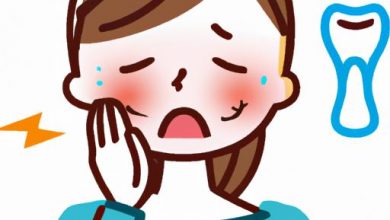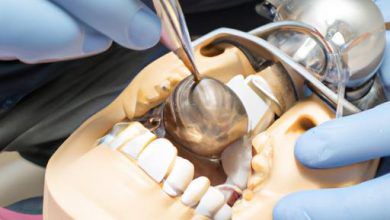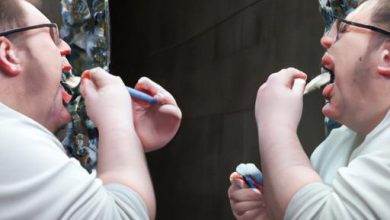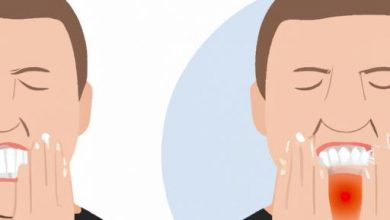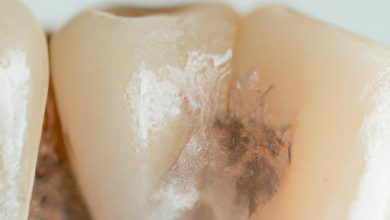Tinnitus and Dental Problems: Understanding the Connection
Tinnitus, a condition characterized by ringing, buzzing, or hissing sounds in the ears, can be caused by a variety of factors, including exposure to loud noise, ear infections, and even dental problems. Research has shown that dental issues such as temporomandibular joint (TMJ) disorders, tooth grinding (bruxism), and dental infections can contribute to the development of tinnitus. In this article, we will explore the connection between tinnitus and dental problems and discuss ways to prevent and manage this condition.
Understanding Tinnitus
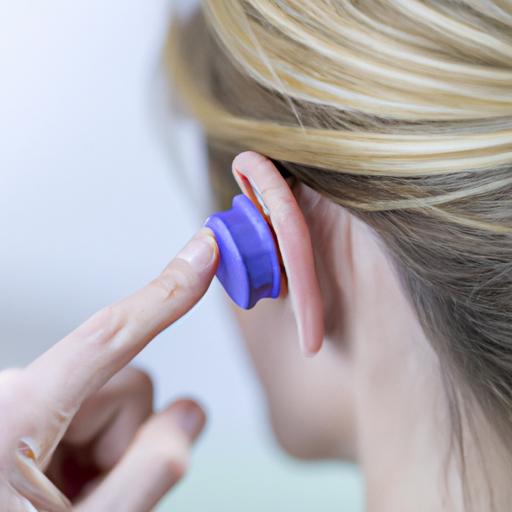
Tinnitus is the perception of sound in the ears or head that is not caused by an external sound source. It can manifest as ringing, buzzing, humming, or hissing sounds and can be constant or intermittent. Tinnitus is a common condition, affecting approximately 15% of the population worldwide. It can have a significant impact on a person’s quality of life, causing sleep disturbances, anxiety, and depression.
Tinnitus can be caused by a variety of factors, including exposure to loud noise, ear infections, and certain medications. In some cases, dental problems can also contribute to the development of tinnitus. Understanding the connection between dental issues and tinnitus is crucial to prevent and manage this condition.
Dental Problems and Tinnitus
Several dental issues can cause or contribute to tinnitus. One of the most common is TMJ disorders, which affect the jaw joint and the muscles that control jaw movement. TMJ disorders can cause pain, clicking or popping sounds in the jaw, and tinnitus. When the jaw is misaligned, it can put pressure on the ear canal, leading to tinnitus.
Another dental problem that can cause tinnitus is tooth grinding or bruxism. This condition can cause damage to the teeth and jaw, leading to inflammation and nerve irritation. This inflammation can spread to the ears, causing tinnitus. Additionally, dental infections, such as periodontal disease or tooth abscesses, can also contribute to tinnitus. When left untreated, these infections can spread to the ear canal, causing tinnitus and other ear-related problems.
Prevention and Treatment
Preventing tinnitus caused by dental problems requires proper dental care and regular visits to the dentist. Maintaining good oral hygiene, such as brushing and flossing regularly, can help prevent dental infections that can lead to tinnitus. Additionally, practicing stress-reducing techniques such as meditation, yoga, and exercise can help prevent tooth grinding and TMJ disorders.
If you are experiencing tinnitus, it is essential to consult with a medical professional to determine the underlying cause. If the tinnitus is caused by a dental issue, your dentist may recommend specific treatments, such as orthodontic treatment for TMJ disorders, mouthguards for bruxism, or antibiotics for dental infections. In some cases, tinnitus can be managed with sound therapy, cognitive-behavioral therapy, or medication.
Managing dental problems is crucial to prevent and manage tinnitus. If you have a dental issue such as periodontal disease or tooth abscess, it is essential to seek treatment promptly. Failure to treat these conditions can lead to more severe dental problems and contribute to the development of tinnitus. Additionally, practicing good oral hygiene and avoiding behaviors that can cause tooth grinding, such as chewing on hard objects or using tobacco products, can help prevent dental problems that can lead to tinnitus.
Case Studies
Case studies provide real-life examples of patients who have developed tinnitus due to dental problems. One study published in the International Tinnitus Journal reported a case of a patient who developed tinnitus due to a dental infection. The patient had a history of tooth abscess, and after multiple failed treatments, the infection spread to the ear canal, causing tinnitus. After undergoing a root canal and antibiotic treatment, the patient’s tinnitus subsided.
Another study published in the Journal of the American Dental Association reported a case of a patient who developed tinnitus due to bruxism. The patient had worn down teeth and jaw pain, which was diagnosed as bruxism. After being fitted with a custom mouthguard, the patient’s tinnitus and other symptoms improved.
These case studies highlight the importance of prompt diagnosis and treatment of dental problems to prevent and manage tinnitus. If you are experiencing tinnitus, it is essential to consult with a medical professional to determine the underlying cause and receive appropriate treatment.
Case Studies
Real-life examples of patients who have developed tinnitus due to dental problems can provide insight into the impact of dental issues on tinnitus. One case study involved a patient who was experiencing severe tinnitus that was affecting their quality of life. After a thorough examination, it was discovered that the patient had a dental infection that was causing the tinnitus. Once the infection was treated, the patient’s tinnitus improved significantly.
Another case study involved a patient who was experiencing tinnitus and jaw pain. After a dental examination, it was discovered that the patient had a misaligned jaw that was causing pressure on the ear canal. The patient was treated with a custom-made oral appliance that helped to realign the jaw, reducing pressure on the ear canal and relieving the tinnitus.
These case studies demonstrate the importance of seeking dental treatment if you are experiencing tinnitus. In some cases, dental issues may be the underlying cause of tinnitus, and treating these issues can lead to significant improvement in symptoms.
Conclusion
Tinnitus can be a challenging condition to manage, and dental problems can exacerbate this condition. Understanding the connection between tinnitus and dental problems can help to prevent and manage this condition effectively. By seeking dental treatment for issues such as TMJ disorders, tooth grinding, and dental infections, you can reduce the risk of developing tinnitus or improve existing symptoms. At Zahnweiss Info, we are dedicated to providing the latest updates on dental health news, treatments, and therapies, inspiring patient stories, and expert advice. If you are experiencing tinnitus or dental problems, we encourage you to seek professional dental care to prevent and manage these conditions effectively.
